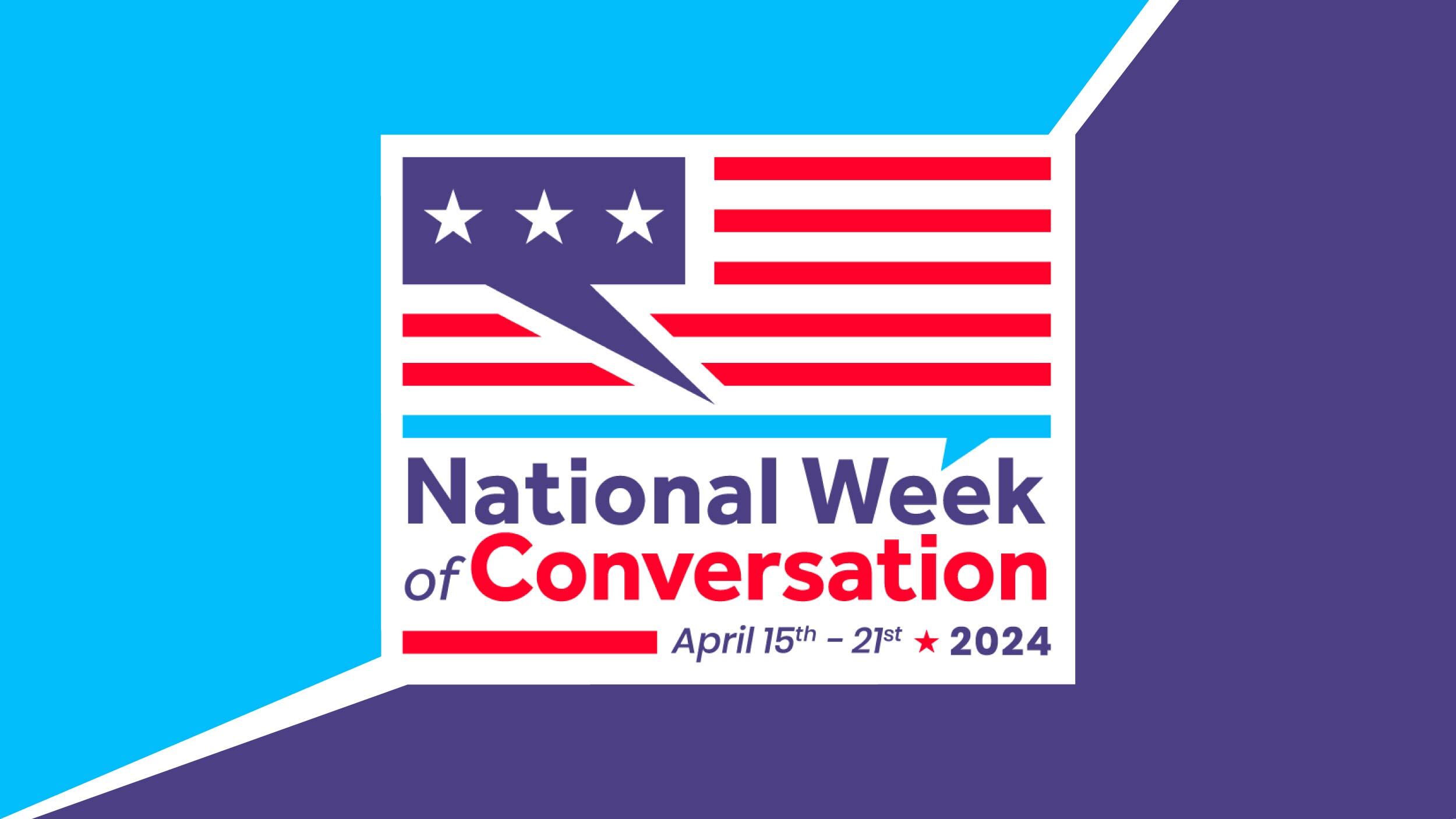Mississippi Today
At The Center for Practical Ethics, it’s all about dialogue – and the willingness to be wrong

Talk more; proclaim less.
It's one of our mottos here at The Center for Practical Ethics (TCPE). To put another way, we might say our goal is to foster conversations rather than diatribes. This task is more difficult than most realize. What we know as ethicists is that merely having conversations isn't enough. There's a wide variety of skills needed for fruitful dialogue to take place, and some are harder to come by than others.
The ideal conversation partner is curious and humble, able to actively listen, knowledgeable about his or her own positions, familiar with basic principles of logical argument, charitable when interpreting claims, and—most importantly—willing to be wrong. Our work centers around equipping students with these skills and helping them navigate the complex ethical issues within our society's most contentious disagreements.
This year, National Week of Conversations (NWoC) coincided with Ethics Week here at the University of Mississippi (UM). Many of our events are conversation-based because dialogue is the best way to evaluate the ideas of others and open ourselves up to new information and interpretation of facts, while gaining a better understanding of our own views.
Two of our events in particular are worth examining more closely to see why NWoC and the work we do at TCPE are critical for sustaining civil society and the myriad public goods we all take for granted. First is our signature Just Conversations event. Students are placed in small groups and given a couple of ethical dilemmas to discuss. Trained student moderators guide the discussion to point out important aspects of the dilemmas, such as logical fallacies, analysis of stakeholders, ethical concepts and assumptions, and varying methods to achieve goals. Students often discover they agree with others—on the dilemma outcome and the details—far more than they expected.
Second, we have invited free speech scholar Sigal Ben-Porath to give a talk about her new book “Cancel Wars: How Universities Can Foster Free Speech, Promote Inclusion, and Renew Democracy”. Ben-Porath contends that universities are laboratories of democracy where students must learn to engage with disagreement. If the university is to be a place where truth is discovered, it must take seriously its historic social and educational obligation to train students in the skills needed for civil discourse and critical thinking. Her work is especially relevant in our ever more polarized times.
What these events demonstrate is that conversations—that is, engaged and fruitful conversations—must take place at all levels. Students must learn to talk to students just as much as faculty must learn to talk to faculty and administrators to administrators. What's more, these groups must talk to each other because while each of us have a role within academia (faculty, staff, student, dean, vice chancellor, etc.), we are also all citizens who work and live together.
Policies must be made, votes cast, businesses founded, churches attended, friendships established, and life lived. TCPE focuses on the skills of civil discourse by providing opportunities to cultivate those skills through Ethics Week, and highlights conversations that ask us to reflect on the role of universities as part of the NWoC.

Join the conversation.
Join us at Noon on Friday, April 19 for a VIRTUAL lunch and learn session exploring tools to make us better listeners, and in turn, better equipped to engage in meaningful conversations across differences.
The session will be led by Dr. Graham Bodie, professor and Interim Chair of the Department of Media and Communication in the School of Journalism and New Media at the University of Mississippi.
This event is free and open to the public. Register to receive more information.
This article first appeared on Mississippi Today and is republished here under a Creative Commons license.
Mississippi Today
On this day in 1937


May 1, 1937

Jackie Ormes became the first known Black cartoonist whose work was read coast to coast through the major black publication, the Pittsburgh Courier.
Her cartoon told the story of Torchy Brown, a Mississippi teenager who sang and danced her way from Mississippi to New York City, mirroring the Great Migration, when millions of African Americans trekked from the South to the North, Midwest and West.
In 1945, her cartoon, “Patty-Jo ‘n' Ginger,” started. The strip proved so popular that department stores sold Patty-Jo as a doll. Five years later, Torchy returned, this time as a confident and courageous woman who dared to tackle such issues as race, sex and the environment. Readers applauded this strong model of what young Black women could be.
In 2014, she was inducted into the Black Journalists Hall of Fame and was later featured by Google on its search page.
This article first appeared on Mississippi Today and is republished here under a Creative Commons license.
Did you miss our previous article…
https://www.biloxinewsevents.com/?p=354343
Mississippi Today
Work requirement will likely delay or invalidate Medicaid expansion in Mississippi
The final version of Medicaid expansion in the Legislature could leave tens of thousands of uninsured, working Mississippians waiting indefinitely for Medicaid coverage – unless the federal government makes an unprecedented move.
The compromise lawmakers reached minutes before a legislative deadline on Monday night makes expansion contingent on a work requirement. That means even if both chambers pass the bill, the estimated 200,000 Mississippians who would qualify for coverage would need to wait until the federal government, under either a Biden or Trump administration, approved the waiver necessary to implement a work requirement – which could take years, if ever.
Lawmakers in favor of the work requirement have not been open to allowing expansion to move forward while the work requirement is in flux. The House bill proposed expansion be implemented immediately but included a “trigger law” similar to North Carolina's. The “trigger law” mandated that if the federal government ever changed its policy on allowing states to implement a work requirement, Mississippi would move to implement one immediately.
Senator Brice Wiggins, R-Pascagoula, one of the Medicaid expansion conferees, posted on social media “if CMMS wants people covered then it will approve (the work requirement). Nothing prevents them from approving it other than POTUS/CMMS philosophy.”
But even in states where a work requirement was approved, litigation ensued, with the courts finding the approval of the work requirement unlawful for a number of reasons, according to a KFF report.
Senate Medicaid Chairman Kevin Blackwell, R-Southaven, did not respond to Mississippi Today by the time the story published.
Will a Biden – or Trump – administration approve the work requirement?
The Biden administration has never approved the waiver necessary for a work requirement and has rescinded ones previously granted under the Trump administration. Waivers granted under the Trump administration were not granted under the current circumstances as Mississippi.
Mississippi Today reached out to the Centers for Medicare and Medicaid Services for comment but did not hear back by the time of publication.
Joan Alker, Medicaid expert and executive director of Georgetown University's Center for Children and Families, explained that the Trump administration has never approved a work requirement up front for a traditional expansion plan like Mississippi's.
In states like Kentucky and Arkansas, Alker explained, the Trump administration approved work requirements as a means of limiting already-existing expansion plans. In Georgia, an outlier state that remains in litigation with the Biden administration for rescinding the state's work requirement waiver, the Trump administration approved a work requirement for a plan that isn't considered full “expansion” under the Affordable Care Act and doesn't draw down the increased federal match rate.
“If the Legislature passed a bill with both of those requirements being non-negotiable, (the work requirement and the enhanced match) they need to know that there is no precedent for that kind of approval from either a Biden or a Trump CMS,” she said.
What happens if a work requirement is approved?
In the best case scenario – that a work requirement is approved by some administration in the near future – its implementation could mean an increase in administrative costs and a decrease in eligible enrollees getting the coverage for which they qualify. Georgia's plan, for example, requires people document they're in school, working or participating in other activities. The requirement has cost taxpayers at least $26 million, and more than 90% of that has gone toward administrative and consulting costs, according to KFF Health News.
“Even if CMS does approve (it), actually implementing and administering work requirements is costly and complex,” explained Morgan Henderson, the principal data scientist on a study commissioned by the Center for Mississippi Health Policy and conducted by the Hilltop Institute at the University of Maryland, Baltimore County. “This would almost certainly significantly dampen enrollment relative to a scenario with no work requirements, and cost the state millions to implement.”
Many of the cases where work requirements were approved but then deemed unlawful were due to court rulings that found that the work requirement resulted in lower enrollment, counterproductive to the primary goal of Medicaid.
In addition to lowering enrollment, the work requirements have not led to increased employment, the primary goal of the work requirement, explained Alice Middleton, deputy director of the Hilltop Institute and a former deputy director of the Division of Eligibility and Enrollment at the Centers for Medicare and Medicaid Services.
“Recent guidance has been clear that work requirements would jeopardize health coverage and access without increasing employment,” Middleton said. “While a future Trump Administration may revisit these decisions and approve work requirements again, legal challenges are likely to follow …”
Senate leaders compromised with the House on a number of fine points regarding the work requirement: reducing the mandatory employment from 120 to 100 hours a month; reducing the number of employment verification renewals from four times to once a year; and removing the clause that would require the state to enter into litigation with the federal government, as Georgia did, if the federal government turns down the work requirement.
“It was encouraging to see both sides compromising, but, ultimately, the inclusion of work requirements presents multiple sets of challenges to successful expansion,” Henderson said.
This article first appeared on Mississippi Today and is republished here under a Creative Commons license.
Mississippi Today
Why many House Democrats say they’ll vote against a bill that is ‘Medicaid expansion in name only’
For a decade, House Democrats have been beating the drum — often when it seemed no one else was listening — to expand Medicaid to provide health care for working poor Mississippians.
It looks as though a large majority of those House Democrats as early as Wednesday will vote against and possibly kill a bill that purports to expand Medicaid.
They say the agreement reached late Monday between House and Senate Republicans may be called Medicaid expansion, but it is not written to actually go into effect or help the hundreds of thousands of Mississippians who need health care coverage.
“It is just like an eggshell with no egg in the middle,” said Rep. Timaka James-Jones, a Democratic from Belzoni in her first term. “It does not make sense.”
Republicans, who have have supermajorities in both the House and Senate and do not need a single Democratic vote to pass any bill, have for years relished their power over legislative Democrats. But when a three-fifths vote is needed and Republicans aren't in unanimous agreement like on this current bill, Democrats have real power to flex.
Earlier on Tuesday, after a closed-door luncheon meeting of House Democrats, Rep. Robert Johnson of Natchez, the minority leader, informed Speaker Jason White that 32 of the 41 House Democrats planned to vote no. That news sent shockwaves through the Capitol.
With several House Republicans also expected to vote no, that number of dissenting Democrats would likely prevent the legislation from getting the three-fifths majority needed to pass. And no votes by 32 Democrats would surely mean the proposal would fall short of the two-thirds majority that would be needed later to override an expected veto from Gov. Tate Reeves, who is opposed to accepting more than a $1 billion a year in federal funds to provide health care for an estimated 200,000 Mississippians.
At issue for the House Democrats is a work requirement that Senate Republicans insisted be placed in the bill and that House negotiators agreed to minutes before the Monday night deadline to reach an agreement between the two chambers.
Federal officials have made it clear in the past that they would not approve a work requirement as part of Medicaid expansion. But in the proposal that House and Senate leaders agreed to, Medicaid expansion would not go into effect until federal officials approve a work requirement.
Senate leaders have expressed optimism that the Biden administration would be so pleased with longtime Medicaid expansion holdout Mississippi making an effort that it would approve a work requirement, or that the conservative federal 5th Circuit Court would approve it if litigated.
“It is tough. For the 11 years I have served in the House, I have supported the state expanding Medicaid,” said Rep. John Faulkner, D-Holly Springs. “But the truth is this conference report really doesn't do anything to help poor people who need it.”
The comments made by Faulkner were echoed by multiple House Democrats at the luncheon meeting, according to numerous sources inside the meeting.
After that meeting, Democratic leader Johnson relayed those sentiments and the Democrats' plans to vote against the proposal to White.
So White called a Tuesday afternoon meeting with Johnson. After the Republican speaker and Democratic leader met behind closed doors, Johnson announced on the House floor that House Democrats would hold another caucus meeting. It did not last long.
After that meeting, several Democrats said their plans to vote against the bill had not changed, though some acknowledged privately that voting against the bill would be difficult. One member, when asked if the Democrats still planned to vote against the proposal in large numbers, replied, “It is fluid. I don't know. We will see.”
Many of the Democrats praised White, a first-term speaker, for finally tackling Medicaid expansion. And they praised the original House bill that that allowed Medicaid expansion to go into effect in Mississippi like it had in 40 other states even if a work requirement was struck down by federal officials. They also praised Republican Medicaid Chairwoman Missy McGee for her work to pass “a clean” Medicaid expansion bill.
READ MORE: House agrees to work requirement, Senate concedes covering more people in Medicaid expansion deal
But they expressed disappointment with the final agreement worked out between House and Senate leaders with the non-negotiable work requirement. They said they had informed House leaders all along that they would oppose a compromise that included a work requirement.
“We know all eyes are on us right now because the Republican supermajority couldn't reach an agreement among themselves,” said Rep. Daryl Porter, D-Summit. “Republican infighting on Medicaid expansion becoming our responsibility to referee feels unfair when they're the ones who couldn't get the support for their own bill. They're waiting to see if we'll bail them out.”
Several House Democrats said it would be difficult to go back home and explain to their constituents that they voted against Medicaid expansion.
But Rep. Rickey Thompson, D-Tupelo, said people should not view them as voting against Medicaid expansion simply because the bill would not expand Medicaid.
“It just puts something on paper, but it does not do anything,” said Thompson.
“It is not Medicaid expansion,” said Zakiya Summers, D-Jackson, who said she campaigned on Medicaid expansion when she first ran and was first elected in 2019. She spoke as a surrogate for Democratic gubernatorial candidate Brandon Presley last year in support of Medicaid expansion.
Rep. Bryant Clark, D-Pickens, said it would be more difficult to explain to constituents that they could not get health care through Medicaid even after the Legislature approved it than to vote against it and explain the reason for that vote.
Numerous members said Rep. Percy Watson, D-Hattiesburg, made the most salient point at the Democrats' first caucus meeting on Tuesday.
Watson, the longest serving member of the House, told the story of a vote in the 1982 session on a bill that would have allowed local school districts to enact kindergarten and require mandatory school attendance. Watson said he voted for the bill, but later was pleased that it died.
If that bill had passed, there would not have been the landmark special session later that year when statewide kindergarten was created and school attendance was mandated statewide.
“Sometimes it takes more than one session to pass something important,” Watson said.
Everyone at the Capitol is closely tracking what the House Democrats decide — including Senate Republicans, who are reportedly struggling to get a three-fifths vote of their own to pass the bill in that chamber.
After word spread Tuesday of the House Democrats' meeting and potential killing of the expansion bill, Senate Medicaid Chair Kevin Blackwell, R-Southaven, said he would not present the expansion proposal in his chamber until after the House acted.
The bill, which faces a Thursday evening deadline, could be sent back for additional negotiations where the work requirement could be removed. But the Senate has thus far not yielded on the work requirement — something that House Democrats, clearly, believe would result in the bill never going into effect.
READ MORE: Back-and-forth: House, Senate swap Medicaid expansion proposals, counter offers
This article first appeared on Mississippi Today and is republished here under a Creative Commons license.
-
Local News6 days ago
Sister of Mississippi man who died after police pulled him from car rejects lawsuit settlement
-
Mississippi Today6 days ago
At Lake High School in Scott County, the Un-Team will never be forgotten
-
Mississippi Today3 days ago
On this day in 1951
-
Mississippi News4 days ago
One injured in Mississippi officer-involved shooting after chase
-
SuperTalk FM2 days ago
Festival merger in Leland sets up one major event for Mississippi Delta
-
Mississippi News6 days ago
Ridgeland man sentenced for molesting girl
-
Mississippi News1 day ago
Two women accused of shoplifting across southeast captured in Mississippi
-
Mississippi News Video6 days ago
Vehicle fire blocks all lanes of I-55 South in Hinds County







































